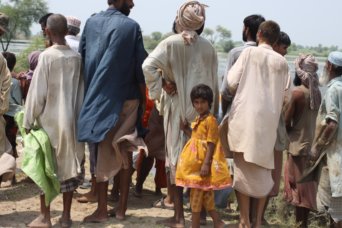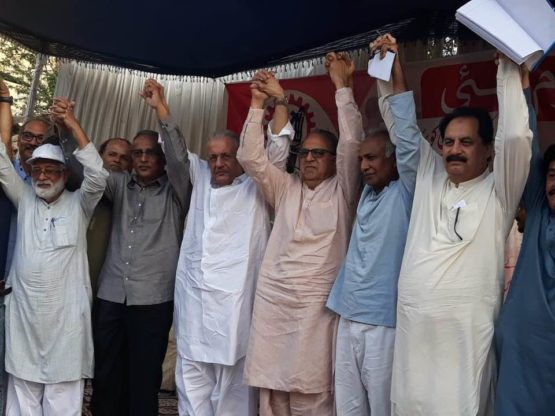- About
- Topics
- Picks
- Audio
- Story
- In-Depth
- Opinion
- News
- Donate
- Signup for our newsletterOur Editors' Best Picks.Send
Read, Debate: Engage.
| located: | Pakistan |
|---|---|
| editor: | Shadi Khan Saif |
As the political and military elite in Pakistan is set to embrace yet another thorny IMF bailout package, millions of poor living on the margins of the society are likely to further suffer under additional regulatory duties, swelling energy prices, and lowering of development expenditures.
Even before the formal signing of the proposed deal, the markets are crumbling in the South Asian country, with some 200 million citizens. Prices of basic commodities are skyrocketing as the local currency rupee starts feeling the heat of one of IMF's conditions, which calls for so-called market-based exchange rate mechanism that will see limited intervention by the central bank.
Common Pakistani citizens seem caught in a vicious cycle of economic policies cobbled under the shadows of often misperceived regional geostrategic ambitions by the military and domestic patronage for the political elite. The country has inked 21 loan agreements with the IMF since 1958.
Over the past several decades, successive governments have been boasting about breaking the begging bowl, but only to grab votes and eventually further burden future generations with more and more loans. There have been no bold moves to directly tax the rich.
Despite having the backing of the powerful army, the current government – led by sportsman-turned-politician, Imran Khan – is on the same path. Khan promised wide-ranging tax reforms, however, he seems to be backtracking on the pledges to institute genuine reforms as he desperately attempts to shore up foreign reserves and evade potential economic collapse.
Meanwhile, much of the military-run business empires and agriculture controlled by the political elite continue to enjoy tax evasions to large extent. This nexus is the core obstacle hindering widening of the tax base.
As things stand in regards to Pakistan’s ailing economy, new taxes of billions of dollars are likely to be imposed. And, if the trend of making the common poor citizens the scapegoat continues, the country is set to further plunge into extreme poverty.
Photo: flickr, DVIDSHUB

